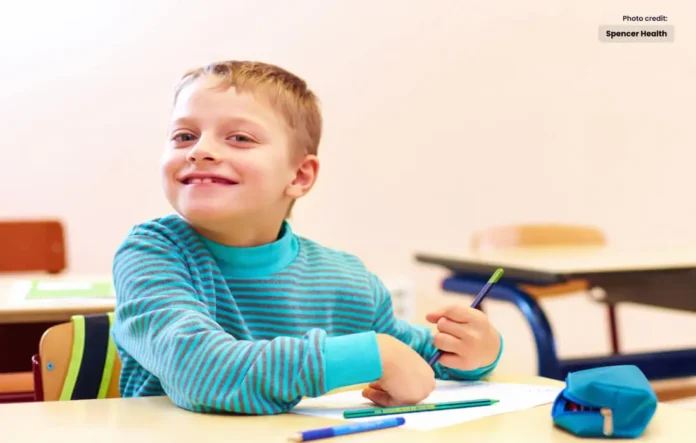Effective strategies to support autistic children for brighter future.
Through the acceptance of neurodiversity and the application of customized techniques, we can open doors for autistic children to have a brighter future.
Different people are affected differently by autism spectrum disorder (ASD), a complicated neurodevelopmental illness that causes difficulties with behavior, social interaction, and communication. Efforts to empower and support autistic children have grown along with our understanding of autism.
Read More Informative Articles in Urdu
Comprehending Autism Spectrum Disorder
Some people with autism may be exceptionally gifted in some areas, like music or arithmetic, but struggle in others, like social relations or sensory processing. Effectively supporting children with autism requires an understanding of and tolerance for this uniqueness.
Educating for Empowerment
Children with autism can become more independent with the help of education. Maximizing their potential can be achieved by creating individualized education plans (IEPs) that cater to their specific strengths and limitations.
Encouraging learning environments that are customized to individual requirements can be established by implementing evidence-based strategies like applied behavior analysis (ABA) or structured teaching techniques like TEACCH.
In addition, encouraging diversity in schools encourages peer acceptance and understanding. Children who are neurotypical should be encouraged to learn about autism and accept differences since this fosters empathy and lessens stigma, making the community more accepting and helpful to autistic children.
Development of Social and Communication Skills
While communication difficulties are a defining characteristic of autism, language development and social skills can be supported through a variety of ways.
Children who are nonverbal can communicate themselves using augmentative and alternative communication (AAC) devices, and social skills training programs give them the chance to learn and practice social interactions in controlled environments.
Building on one’s hobbies and strengths can also act as a springboard for interpersonal relationships. Through the provision of opportunities for engagement in pursuits that correspond with their passions like gaming, music, or art autistic youngsters can develop self-esteem and meaningful relationships with peers who have similar interests.
Support for Sensory Sensitivities
People with autism frequently have sensory sensitivity, which makes it difficult for them to process sensory information from their surroundings. Reducing sensory overload and offering accommodations for different senses, like fidget toys or noise-canceling headphones, can assist create situations that are more comfortable and conducive to concentration.
We may build surroundings that are more supportive of learning and well-being for children with autism by addressing sensory sensitivities.
Advocacy and Support for Families
Families are essential in helping and advocating for their autistic children. Making connections with support groups for those with autism and consulting experts can yield a wealth of information and understanding when negotiating the difficulties posed by autism.
Additionally, providing a welcoming and supportive home setting helps autistic children develop resilience and self-worth. Acknowledging their successes and giving voice to their experiences gives them a sense of community and confidence to proudly accept their neurodiversity.
Problems of Parents and Autistic Children
Both the parent and the child with autism spectrum disorder (ASD) may face particular difficulties when raising a child. The following are some typical problems parents of children with autism may encounter:
Understanding and Acceptance
- At first, parents might find it difficult to accept and comprehend their child’s diagnosis. It can be extremely difficult for parents to accept that their kid has autism, and this can result in feelings of denial, guilt, or grief.
Access to Services
- Parents may have considerable difficulties in obtaining the right therapies and services for their children. This involves identifying qualified specialists that specialize in working with autistic children, navigating the healthcare system, and obtaining money for therapies.
Financial Strain
- Specialized education programs, therapies, and interventions can come at a hefty price. Many families struggle financially to provide their autistic kid with the care they need.
Behavioral Difficulties
- Children with autism spectrum disorders may display difficult behaviors like tantrums, violence, self-harm, or repeated actions. For parents, dealing with these behaviors can be draining and stressful, particularly if they don’t have the resources or support system in place.
Communication Difficulties
- One of the main characteristics of autism is communication impairments. Some kids may not speak at all or speak very little, which makes it challenging for parents to comprehend their needs, preferences, or feelings.
Social Isolation
- Because of the responsibilities of caregiving and the difficulties in locating inclusive social activities for their kid, parents of autistic children sometimes face social isolation. Families may become even more isolated as a result of stigma and others’ lack of understanding.
School Advocacy
- It can be difficult for parents to navigate the school system and make sure their child has the right supports and accommodations. They might have to speak up in favor of inclusive school environments, specialized instruction, and Individualized Education Programs (IEPs).
Sibling Dynamics
- Children with autism may cause their siblings to feel neglected, resentful, or under pressure to take on caregiving duties. For parents, juggling the requirements of every child in the family can be difficult.
Future Planning
- Parents of children with autism spectrum disorders frequently worry about their child’s future, including independent living, work prospects, and long-term care. Making plans for the shift to adulthood can be difficult and intimidating.
Self-Care
- Raising an autistic child can be emotionally and physically taxing. Parents who don’t take care of themselves may experience burnout, physiological problems linked to stress, or mental health difficulties.
Conclusion
We can pave the way for happier futures by adopting a comprehensive strategy that takes into account the special requirements and assets of autistic kids. By means of advocacy, education, communication assistance, and sensory accommodations, we may enable children with autism to flourish and share their own viewpoints with the world.
Also read this: Cultivating Childhood: Make Children Personalities, Not Individuals




